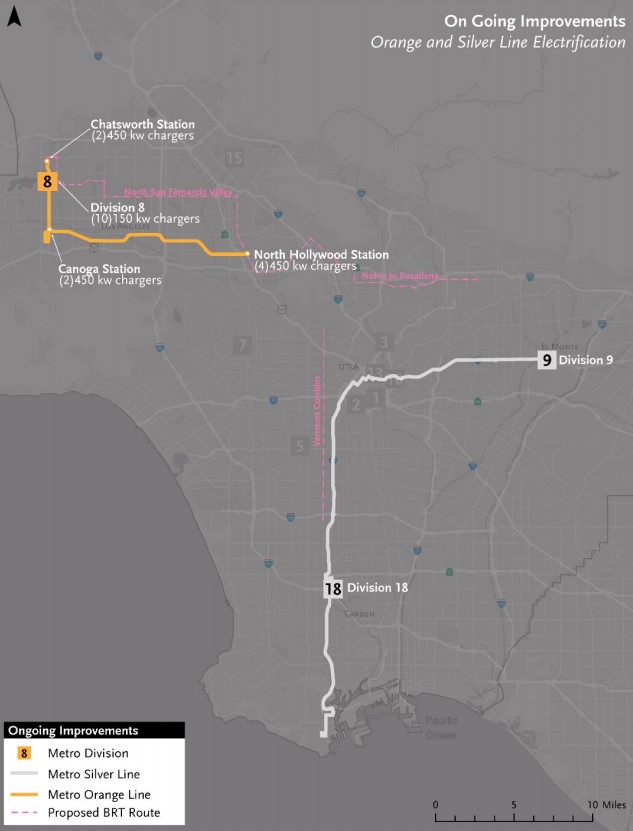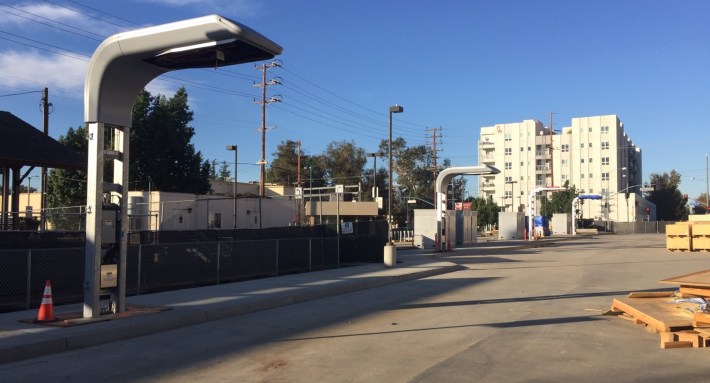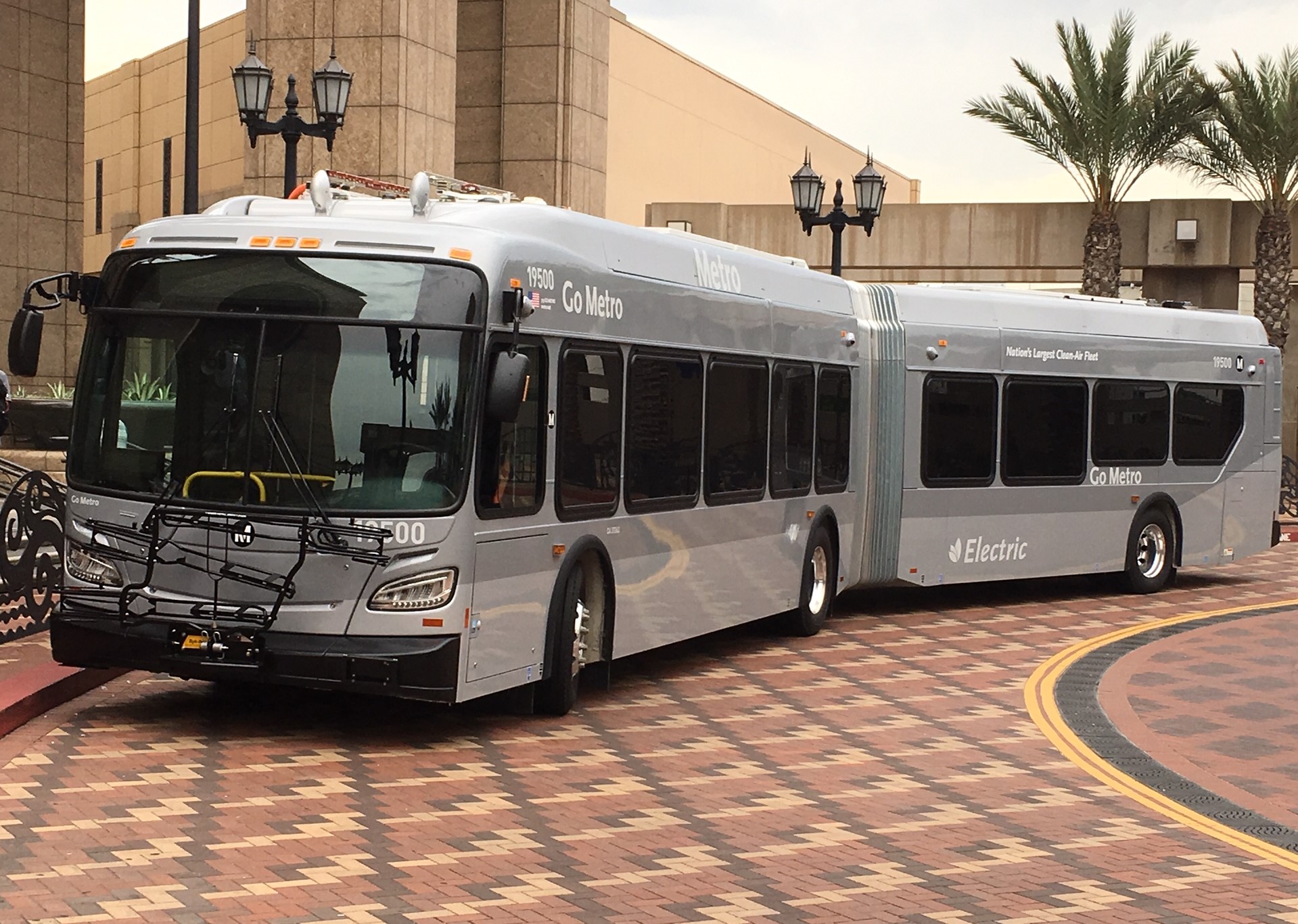Metro is planning to seek state funding to kick-start the planned electrification of its bus fleet.
In 2017, Metro committed to full bus electrification by 2030. However, since then the agency has continued to purchase new compressed natural gas (CNG) buses, approving the most recent batch in September. Continuing fossil-fuel bus purchases have been criticized by electrification supporters including Metro boardmembers Eric Garcetti and Mike Bonin.
Metro operations staff remain skeptical of electrification, citing issues including cost, space constraints, electric grid capacity, and "technology reliability." Note that the same operations departments advised against switching from diesel to natural gas back in the 1990s.
In two recent staff reports (July and September 2019), Metro preliminarily estimated $700 million to $1 billion for charging infrastructure costs, plus about $400 million for electric bus costs. The reports stress the difficulty of squeezing electric charging into bus yards currently built to re-fuel CNG buses, because existing CNG facilities cannot easily be de-commissioned while CNG buses still operate from a given yard.
This week, the Metro board Planning and Programming committee approved an item that should help pay the costs of bus electrification. Assuming it will be approved by the full board in early December, Metro will seek California Transit and Intercity Rail Capital Program (TIRCP) funding for zero-emission buses and the charging infrastructure to support them.
TIRCP is funded by both the S.B. 1 gas tax and state's cap-and-trade program. TIRCP supports capital purchases that reduce greenhouse gas emissions, expand/improve transit service, integrate rail operations, and/or improve transit safety.
In 2018, Metro was awarded $330.2 million in TIRCP funding (as well as $758.3 million programmed for later years) for a bundle of transit projects including the Foothill Gold Line, East San Fernando Valley (Van Nuys) light rail, West Santa Ana Branch, Green Line to Torrance, NoHo to Pasadena BRT, Vermont BRT, regional network integration with Metrolink, Amtrak, and additional transit services.
The latest round of TIRCP grant applications are due in January. Metro plans to request $104 million of an estimated $210 million project to purchase 220 battery-electric buses that would operate out of two divisions, in El Monte and Gardena. Electrification is Metro's top TIRCP priority, though the agency also plans to seek funding for Metrolink Antelope Valley Line improvements and Green Line platform and power improvements. The Metro staff report includes more details for all three projects.

Metro is already proceeding with electrification pilots on the Orange and Silver Bus Rapid Transit Lines.
Charging facility construction is close to completion at the Orange Line's North Hollywood Station. Metro plans to run all-electric 60-foot articulated New Flyer buses on the Orange Line by the end of the current fiscal year (June 2020.) In July, Metro took delivery of its initial electric New Flyer bus.

The Silver Line is scheduled to run all-electric 40-foot buses starting in fiscal year 2020-21.






